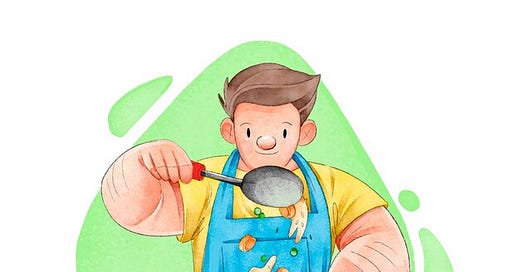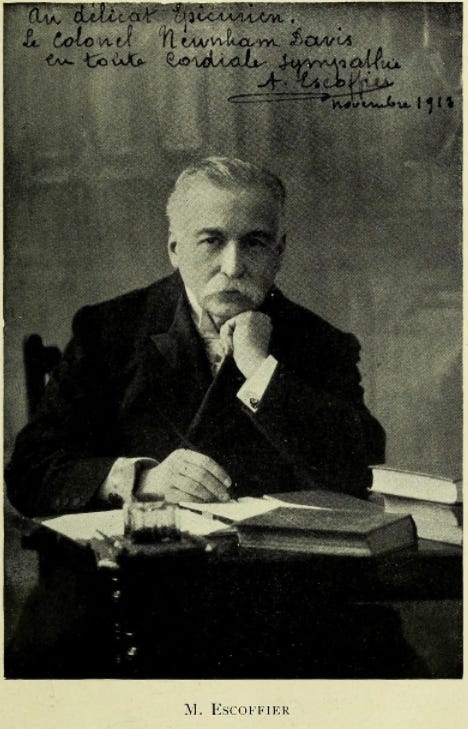Dear Readers,
Taking the trodden path is considered safer, but going down an untrodden path and carving out a new path is indeed adventurist. Should one disregard a known path and pursue another, unmindful of the latent consequences? Should one change the course of things without justification? I had a few readers offering their views.
Abhay says: “Great post! It is also good to understand why a path is, indeed, well-worn. This relates to the concept of ‘Chesterton Fence’ put forward by G K Chesterton in his 1929 book. It affirms the principle that reforms should not be made until the reasoning behind the existing state of affairs is understood.” (if you wish to know more, please visit this page.)
Rajesh Patel says: “My father was a cinematographer, very creative, full of ideas and experimentation was in his genes. For very strange reasons, I decided to pursue architecture. After reading FC 88, I realised that creativity has different paths.”
Tarun Kunzru says: “The young at heart take new paths, the older are driven by habit.”
♂ Is there a kitchen on Mars?
When I was growing up I had no opportunity to learn cooking, as in those days my grandmother ruled the kitchen, and it was out of bounds for us. The closest we got to the kitchen was to stand at its threshold and hand over something that was needed. My mother too was not very involved in getting the food ready, but she was extremely resourceful and efficient in the supply chain management. She was the one who kept the pantry replenished.
I can’t remember when I first got some exposure to cooking. I never stayed away from home and had no compulsion to light a stove. In those days, we had not heard of LPG — we had chulhas (stoves) made of brick and mortar:
Later on, kerosene stoves replaced these chulhas, and it took a while for people to get used to the smell.
Operating the simple stove was easy, but operating the pressure stove required some practice. At our home in Mysore, the closest we got to cooking was to light the stove, and sometimes clean it.
Much later on, when I lived with my brother-in-law in Mumbai, I learnt to set the cooker (hurray!) and graduated to preparing sambar and some curd rice. Making upma was not easy in the beginning, but I got a hang of it. As I write this post, I am accused by my wife of having abandoned my culinary skills. I am now content being the official coffee maker.
My brother is excellent at preparing food and at trying different cooking methods. He is equally good at creating trouble for me and gets a kick out of it. Whenever he comes over, he heads straight to the kitchen and helps my wife, which prompts her to ask me, “Why couldn’t you have learnt to cook like your brother?” I let the rhetoric be.
In Hindu Mythology, the two men who are prominently associated with culinary skills are:
Nala, the king of Nishadha Kingdom who marries princess Damayanti of the Vidarbha Kingdom. Their story is told in the Mahabharata. He was a great cook and wrote the first-ever book on cookery, Pakadarpanam (Sanskrit: पाकदर्पण).
Bhimasena, the second Pandava, was also skilful in the culinary arts. It is widely known that when each of the Pandavas chose to live in a disguise during their one-year exile, Bhima lived as a cook in Virata's kitchen by the assumed name Vallabha. Bhima is believed to be the first to have cooked the famous dish aviyal.
In the past, it was believed that men went out to cook to make a living and women cooked at home. The ‘working woman’ was a relatively unknown concept. Consequently, the chef tribe was (and perhaps is) dominated by men, though it is heartening to see that this sexist system is shifting in balance as more and more female chefs take their place. A chef is both a professional cook and a business person, proficient in preparing a variety of cuisine and marketing the fare to a discerning clientele. The word ‘chef’ is derived from the term chef de cuisine.
Georges Auguste Escoffier (28 October 1846 – 12 February 1935) was referred to by the French media as ‘king of chefs and chef of kings’. Escoffier was a pre-eminent figure in London and Paris during the 1890s and the early part of the 20th century. Even outside his recipes, Escoffier elevated the profession. He created the brigade de cuisine (kitchen brigade), a hierarchical system for organising kitchen staff that is still standard in many restaurants today. Please use this link to understand the hierarchy and how work was allocated.
Escoffier worked in partnership with hotelier César Ritz, rising to prominence together at the Savoy in London serving the elite of society, and later at the Ritz Hotel in Paris and the Carlton Hotel in London.
Women had to really work hard to even get admitted to this brigade system. The first celebrity female chef was arguably Julia Child. I urge you to watch this video:
If we turn our attention to men at home, we may come across men with very different attitudes towards cooking. It is widely said that men are from Mars. But Mars had no kitchen, and so it appears that the men looked to Venus for survival.
I have come across men who live alone and yet painstakingly cook a nice meal for themselves. Then there are quite a few of them whose lethargy towards cooking is offset by the Swiggy app.
I have known men who tell me they can boil an egg, heat water for making tea etc. One guy dropped a hard-boiled egg on the floor and broke the tile!
Women are encouraged to check if the man they will marry knows cooking. I know of a couple where the husband cooks and the wife doesn’t — they are quite happy.
Some men will relent and get into the kitchen with a proper apron and a chef cap, but they expect the wife, daughter, or son to be a sous-chef (under-chief). I am reminded of a comic strip in which the wife sticks the helpline of the fire brigade on the kitchen wall.
Men are said to be not good at multitasking. On the occasions that I undertake to prepare something, I do everything neatly, without spilling — but when I tell my wife this, she tells me that I have taken 20 minutes just to cut the carrot. When she cooks the kitchen may look like a war zone but within a couple of hours, she can feed an army.
Learning to cook requires a certain mindset. Some consider an occasional foray into the kitchen therapeutic. To quote Brian Herbert: The capacity to learn is a gift, the ability to learn is a skill and the willingness to learn is a choice. So, some men might have the capacity and the ability, but the will may be lacking. I recommend all men to visit Men Who Cook.
To all my male readers, I urge you to share your cooking experience and to all my female readers, I ask you to please narrate your experience with men as cooks.
Until next week, please take good care of yourself and tell me what’s cooking!








Lovely post. I, too, am guilty for being laboriously slow in the kitchen the rare times I put on an apron. I think I should "gamify" cooking by trying to finish within a time box - it might force efficiency.
Very nice loved the post,
While reading this I remembered your mother a lot she was a great Cook. When Geetha and kanchi used to come to Mysore, she used to call us for lunch I can't forget her poliyogare and sweet pongal 😋😋😋 she taught some of the shortcut methods in cooking and preservation of graceries.
My father used to Cook very well probably my son must have taken on him. Amruth is a big foodie and he cooks well too,he always cooks something special on our anniversary and Birthday s that will be his gift us , but after that kitchen will be like a war zone like you mentioned
This 2020 lock down was good we tried lot of new recipes
Really enjoyed FC#89